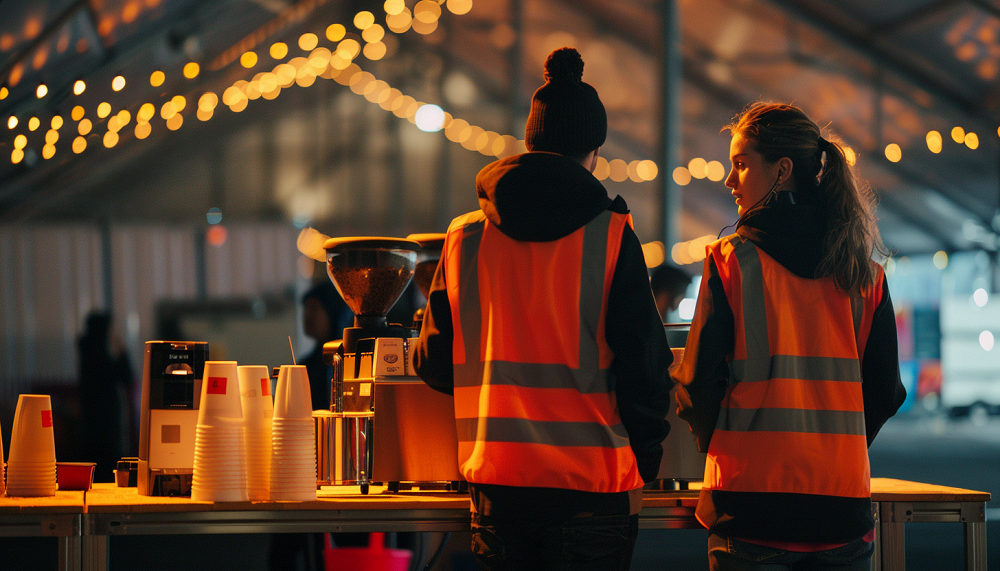If you ask event organisers around the world about the most important aspects of event safety, mental health may not be something that automatically springs to mind. This doesn’t mean that event organisers aren’t supportive, far from it. The disconnect is mainly because the conversation about positive mental health and event safety has only recently started to become more prevalent in the industry.
In this blog, we’ll explore why mental health is just as important as physical health, and the steps event organisers can take to support the mental well-being of their teams.
Why is good mental health important for event teams?
One of the main reasons why good mental health is important for people working at events is that these environments can often be highly stressful. Teams have to work long hours, sometimes deal with difficult situations, and manage multiple tasks at once. Additionally, the fast-paced nature of events means that event workers may have to make quick decisions and react to unexpected scenarios. All of these factors can take a toll on their mental health, leading to burnout, depression, and other mental health issues.
Many event workers are also required to spend long periods of time away from home – which means they are far away from a stable routine, and the support of those they would ordinarily feel comfortable confiding in. Working away from these support systems whilst trying to navigate the demands of a job in unfamiliar surroundings can lead to intensified feelings of loneliness and disconnection.
If an event worker is already suffering with their mental health and they don’t have access to the support they need, it may feel isolating and in some situations could have a detrimental impact on them. If someone is finding it difficult to concentrate or to perform their job effectively, they may lose trust in their ability to make decisions or they may feel a lack of confidence. This situation may not be the case for everyone living with a mental health condition though, so the best route an organiser can take is to create a positive environment for everyone. An environment where all workers feel supported, able to speak out if they choose to and with access to support services.
How can event organisers support the mental health of their team?
To support the mental health of teams working at events, organisers need to take a proactive approach and create a supportive culture where the team can feel able to raise their mental health. Living with a mental health condition is a deeply personal journey and support should be offered to what each individual person feels they need. When there’s a culture of openness and acceptance around mental health, it opens the door to discussing any mental health concerns they may have, if they feel able to do so. It’s also important to provide the team with good welfare provision and time to rest and recover so that they have sufficient downtime to relax and recharge.
Another step that organisers can take is to provide their teams with resources and support to help with their mental health. This can include signposting to counselling services, mental health support groups, or an assistance program. At Harrier, we’re committed to supporting the mental health of not just our own team, but also all the event teams we work alongside. This is why we chose CALM as our charity of the year. CALM provokes conversation, provides advice, and brings people together so they reject living miserably and get help when they need it. The belief we share with our clients is that we must all work together to keep people safe, not just physically but also mentally and CALM’s free resources provide an incredible avenue of support.
Another great initiative that helps create a positive and healthy environment for event workers is providing healthy food options, promoting regular exercise, and encouraging teams to take care of their physical health. Event team leaders should also encourage workers to practice self-care, such as maximising sleep, eating well, and taking time to relax and de-stress.
Finally, it’s key to communicate regularly with teams to check in on their mental health and wellbeing. This can be as simple as having an open-door policy where people feel comfortable in opening up and discussing anything they’re going through. By regularly checking in, event organisers can aim to identify any potential mental health issues in their team early on and take steps to provide the right support.
If you’d like to see how we can support the safety of your team and visitors at your next event, get in touch with our friendly team today.

